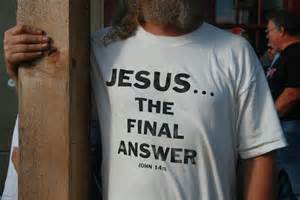I rarely pay attention to American presidential campaigns because they continue non-stop and the candidates so often act like immature kindergarteners, with sweeping statements, nastiness, part-truths and mutual character assassinations. Sometimes entire groups of voters—like the elderly, Hispanics, or millennials–are described in simplistic and inaccurate ways. That includes evangelical voters. I rarely identify as an evangelical any more. My theology remains firmly evangelical: It has not changed. But it’s embarrassing to be grouped with people who share my beliefs about God but whose words, actions, and political views are so different from mine.
 Last week a CNN reporter published his study of the evangelical sub-culture and identified seven groups, at least in the United States. If you identify as an evangelical in theology, do you fit among the following?
Last week a CNN reporter published his study of the evangelical sub-culture and identified seven groups, at least in the United States. If you identify as an evangelical in theology, do you fit among the following?
- The Old Guard. These people–James Dobson and John Hagee are examples–believe the US is and should remain a Christian nation. Many are highly involved with right wing conservative politics.
- Institutional Evangelicals like Rick Warren head megachurches, charities seminaries and evangelical organizations.
- Entrepreneurial Evangelicals (Jerry Fallwell Jr. or Kenneth Copeland) often have big ministries, television outreaches, and schools all built on good business models.
- “Arm’s Length” Evangelicals such as John Piper and Timothy Keller “talk more about Jesus than about politics.” They avoid political activism and focus more on “feeding the believers” and on charity.
- Millennial Evangelicals (Eric Teetsel, Jordan Sekulow and Jonnie Moore) grew up under the old guard and tend to be politically conservative, but they are less opposed to same-sex marriage or environmental regulations, and they are friends with people who don’t accept their views.
- Liberal Evangelicals are best represented by Jimmy Carter or Jim Wallis.
- Cultural Evangelicals say they are born again and accept evangelical theology but they rarely go to church. They are like nonreligious Jews who still identify as Jewish.
A recent report from the National Association of Evangelicals defines evangelicals as those who strongly believe that:
- The Bible is the highest authority for what we believe.
- It is very important for us personally to encourage non-Christians to trust Jesus Christ as their Savior.
- Jesus Christ’s death on the cross is the only sacrifice that could remove the penalty of my sin.
- Only those who trust in Jesus Christ alone as their Savior receive God’s free gift of eternal salvation.
What is your reaction? How much does it matter? Please comment.
Thank you very much. This has been very helpful in this election year. And, it helps me understand why people can adopt a religious label at the same time they vote in a way that seems to be contradictory.
“seven groups”? Or seven tendencies? I, for one, move round amongst those tendencies, depending on opportunities and circumstances.
“… Those who trust in Jesus Christ … as their Savior receive God’s free gift of eternal salvation,” seems more biblical to me, than with the exclusive words.
Jesus Christ came into the world to save sinners. Since those whose opinions differ from mine may be greater or lesser sinners than am I, they, too, may be saved.
Every one of us interprets life based on our experiences and beliefs. It is critical that we present ourselves as “passionate followers of Christ”, assuming that is how we interpret an “Evangelical”. While not everyone would agree with what an Evangelical person is, based on the various definitions you provided, I believe it is still helpful to accept labels that help the cause of Christ to increase.
Being that I am not aware of a better term/label to accept, I am fine to be labeled as an Evangelical.
This article also contributes to the discussion:
http://www.christianitytoday.com/ct/2016/february-web-only/better-way-to-be-evangelical.html?share=VE5p1XQRL21CFpSNoxk1lHwtQCza5TmA
It is so difficult to use a term such as “evangelical” and end up on the same page with many issues! I do believe that when the focus is on our differences, it is harder to unite. Conversely, that should not, in any way, water down our faith. I am an Orthodox Christian, however, there are many things in each denomination that I aspire to. I truly believe that too much focus on evangelical christianity tends to create the mindset that is more of a “American” christianity and that many areas of the world are in need of our missions/help and they have been believers longer than we have!!! We are all brothers and sisters in the faith.